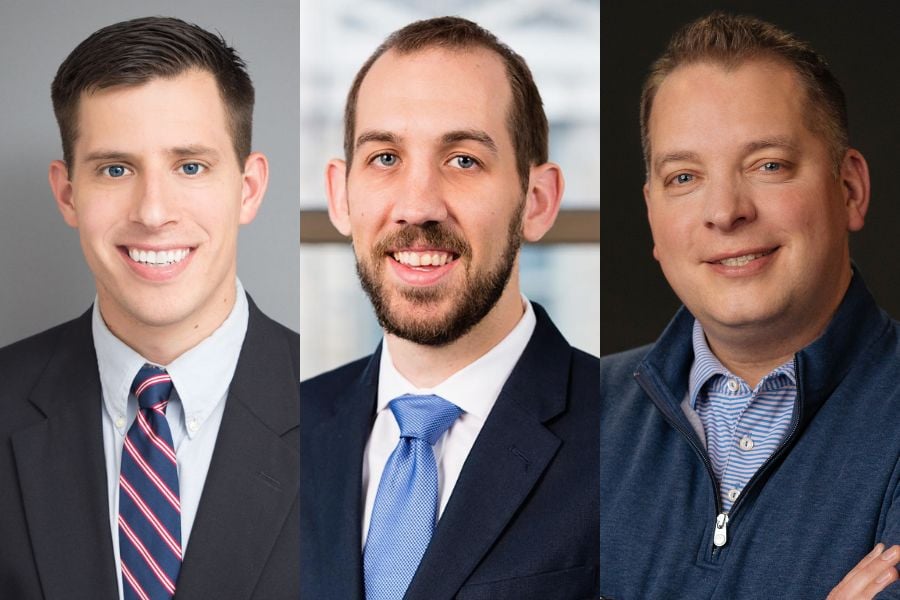

Off the heels of last week’s announcement that Envestnet had agreed to be bought by Bain Capital for almost five billion dollars, several advisors and industry experts are reflecting on what this, and other mega acquisitions, signal for the industry going forward.
Joe Anthony, president at Gregory FCA, said he started in the RIA space over 20 years ago when it was a “cottage industry”, when a large RIA could brag about being a $500 million RIA and feel like they were a big firm.
“Today, obviously, that's not considered as dominant as it once was but now you have firms that are selling for four and a half, $5 billion, like Envestnet. It just signals to people who are going independent that there's money out there to be had going independent,” Anthony said.
“This is a real lucrative place and it’s matured.”
While he doesn’t think the acquisition changes anything drastic about the industry or the independent space, Anthony compared the acquisition to “being a bellwether moment” where it might give advisors who are thinking about becoming entrepreneurs the confidence to do so.
“If I'm an advisor, I'm looking at this and saying, ‘I should feel emboldened. There's still a lot of capital in this space. [If] firms like ours are desirable, I could do well from a career standpoint here.’”
Dann Ryan, managing partner at Sincerus Advisory, said it's impossible to ignore “all the consolidation in the [wealth management] industry right now.”
“It just shows we're not ignored anymore,” he said. “It's easy for a lot of the broker dealers to pretend that they don't see us but at the same time, wealth management is driving their bottom lines and is incredibly profitable for them."
However, acquisitions can, depending on their nature and incoming owner, raise questions over how advisors at large RIAs operate. Independent thinkers or those who have tasted true independence “aren’t very compatible with being told what to do for their clients,” Ryan said. After all, that’s the main reason they went independent in the first place.
“I think a lot of them maybe trick themselves into thinking they would be fine with an acquisition but anyone who’s been through it or really close to one probably knows that they wouldn't do so well in the new environment.”
Ryan point to his own experience of making a similar move. He left his large RIA after being there for almost a decade, when it was acquired by Wealth Enhancement Group.
“That was my cue to start my own RIA five years ago and while they're still an RIA on the face, they're so far removed,” he admits. “I do think that that’s an impetus. For every one of those acquisitions, there's five advisors, like myself, who decide to go start their own thing.”
Alternatively, 37-year-old financial planner at Chisolm Trail Financial Group, Chris Cybulski believes industry acquisitions can only help his career.
“I see the disruption as positive because it creates opportunity,” he admits.
Cybulski, who made the move from Edward Jones last February to Lincoln, which was bought by Osaic earlier this year, highlighted he went from a broker dealer with 2,000 financial advisors to one with almost 13,000.
“There are so many advisors who love what they do, but keep getting hit with regulatory changes, mergers, and evolving technology that disrupts their life. This is prime real estate for us younger advisors who are well-established, well-capitalized, and eager to help take care of their clients,” said Cybulski.
At the end of the day, Anthony believes this is a signal to the market that “the biggest players who have created critical mass,” are now the titans of what has grown to be well beyond the cottage industry he started in.
“This is a signal that the world of independent financial advice and the people that support that has become a real category onto its own,” he said. “Advisors should take note of not only for what it means from a service provider standpoint, but how it takes stock of their own succession plan and their independence.
“I think we're seeing new leaders, new influencers and new investors pop up fairly regularly. It's a sign of health and it’s also a sign of change in the industry.”

A new analysis finds long-running fiscal woes coupled with impacts from the One Big Beautiful Bill Act stand to erode the major pillar for retirement income planning.

Caz Craffy, whom the Department of Justice hit with a 12-year prison term last year for defrauding grieving military families, has been officially exiled from the securities agency.

After years or decades spent building deep relationships with clients, experienced advisors' attention and intention must turn toward their spouses, children, and future generations.

The customer’s UBS financial advisor allegedly mishandled an options strategy called a collar, according to the client’s attorney.

An expansion to a 2017 TCJA provision, a permanent increase to the standard deduction, and additional incentives for non-itemizers add new twists to the donate-or-wait decision.
Orion's Tom Wilson on delivering coordinated, high-touch service in a world where returns alone no longer set you apart.
Barely a decade old, registered index-linked annuities have quickly surged in popularity, thanks to their unique blend of protection and growth potential—an appealing option for investors looking to chart a steadier course through today's choppy market waters, says Myles Lambert, Brighthouse Financial.
